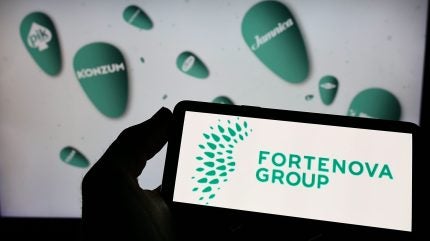
Fortenova, the Croatia-based conglomerate, is exploring what buyer interest there might be in its agribusiness division.
The company said today (30 January) it had sent a “teaser to possibly interested buyers” and expects to receive non-binding offers by the end of the first quarter.

Discover B2B Marketing That Performs
Combine business intelligence and editorial excellence to reach engaged professionals across 36 leading media platforms.
If Fortenova does ultimately strike a deal, it wants to use the proceeds to reduce its debts and make “strategic investments” in the “core business areas” of retail and food.
The group’s “agricultural business division” includes operations such as meat processor Belje, vegetables supplier PIK Vinkovci and pig breeding-to-winemaking business Vupik.
Fortenova’s retail arm comprises supermarket chains Konzum and Mercator. Its food unit includes condiments and edible oils business Zvijezda, cheese maker Agrolaguna and soft-drinks company Jamnica.
Three years ago, the company sold its frozen-food assets to Birds Eye and Iglo giant Nomad Foods.

US Tariffs are shifting - will you react or anticipate?
Don’t let policy changes catch you off guard. Stay proactive with real-time data and expert analysis.
By GlobalData“Similar to Fortenova Group’s sale of the frozen food business division completed in 2021, the continuation of the process will depend on the quality of non-binding offers from potential strategic partners and will be focused on those willing to not only offer a fair price but also make a maximum contribution to the further development and preservation of employment and the tradition of agricultural production in Croatia,” the group said in today’s statement.
Just before Christmas, a majority of shareholders in Fortenova voted in favour of an ownership restructure of the business under a newly-formed Dutch holding company.
The transfer-of-equity proposal, for as much as €660m (then $722.8m), is anticipated to close in the second quarter of next year and includes a provision to compensate sanctioned equity holders for their loss of interest.
At the time, Fortenova said Open Pass Ltd. has “committed to fund all the consideration payable, if necessary”. According to Reuters, Open Pass is owned by Croatian businessman Pavao Vujnovac and has a 28% stake in the business.
SBK Art has a stake of around 40% in Fortenova after Dubai-based Saif Alketbi bought the holding from sanctioned Russian lender Sberbank in October. SBK Art is also sanctioned by the EU.
Alketbi has been trying to block a sale of Fortenova through legal action in the Netherlands. However, after a fourth appeal by Alketbi and SBK Art to the Supreme Court of the Netherlands to prevent a sale, the latest proposition was rejected on 15 December. A final decision is due on 31 May.
The structure of the €660m deal, approved on 19 December by 97% of non-sanctioned shareholders, is complex and involves Fortenova Group TopCo BV as the so-termed seller and Iter BidCo BV as the buyer of 100% of the Croatian business.
Before an equity restructure in November, the non-sanctioned shareholdings comprised Fortenova itself and three Dutch “legal entities” or holding companies, all of which are inter-related – Fortenova Group STAK Stichting, Fortenova Group TopCo BV and Fortenova Group HoldCo BV.
STAK Stichting owned TopCo, which in turn was the owner of HoldCo, or the owner of the Fortenova Group. STAK Stichting is the issuer of the group’s depositary receipts (DR), while TopCo is the issuer of convertible bonds.
Under the proposed transaction, 100% of the equity would be sold and transferred to a newly incorporated Dutch corporate entity consisting of Iter STAK Stichting and Iter BidCo.
However, Fortenova said in a statement the new ownership structure “will depend on the interest of the current non-sanctioned depositary receipt holders in additional equity investments”.
The company added: “According to the approved transaction, Fortenova Group’s ownership structure will no longer have sanctioned equity holders, who will be compensated for their ownership.
“All eligible equity holders, i.e. practically all non-sanctioned current DR holders of the company, among which there are a number of Fortenova Group’s partners and suppliers, will participate in the new ownership structure.
“Current non-sanctioned equity holders shall thus be able to either simply transfer their stake to the new BidCo, or, by opting to provide an additional investment at [their] own discretion, increase their ownership stake or elect to cash out and exit the ownership structure.”
In terms of compensation for the sanctioned equity holders, payment will be made to a special account to which they will be given access “once the sanctions regulations of the European Union, the US and the UK permit it”.
Fortenova’s CEO and board member, Fabris Peruško, said in December he hoped the consolidation of the equity in the group and provisions for sanctioned shareholders would bring the drawn-out process to a close.
“This solution also equally protects unsanctioned and sanctioned equity holders, to whom payment of the agreed amount preserves the value of their investments,” Peruško said.
“Without sanctioned equity holders in the ownership structure, the company will be able to continue to operate successfully, achieve good results and increase value for all stakeholders.”
In September, Fortenova issued its unaudited results for the six months to 30 June 2023, in euros.
Revenue increased 8% to €2.7bn but adjusted EBITDA was down 25% at €101m.
Losses on the bottom line widened to a net loss of €40.5m from a €3.3m loss.




